5 Hollywood Meetings You Should Master and How to Do It
The better you handle meetings, the more likely your movies are to be made. These industry insiders show you how.
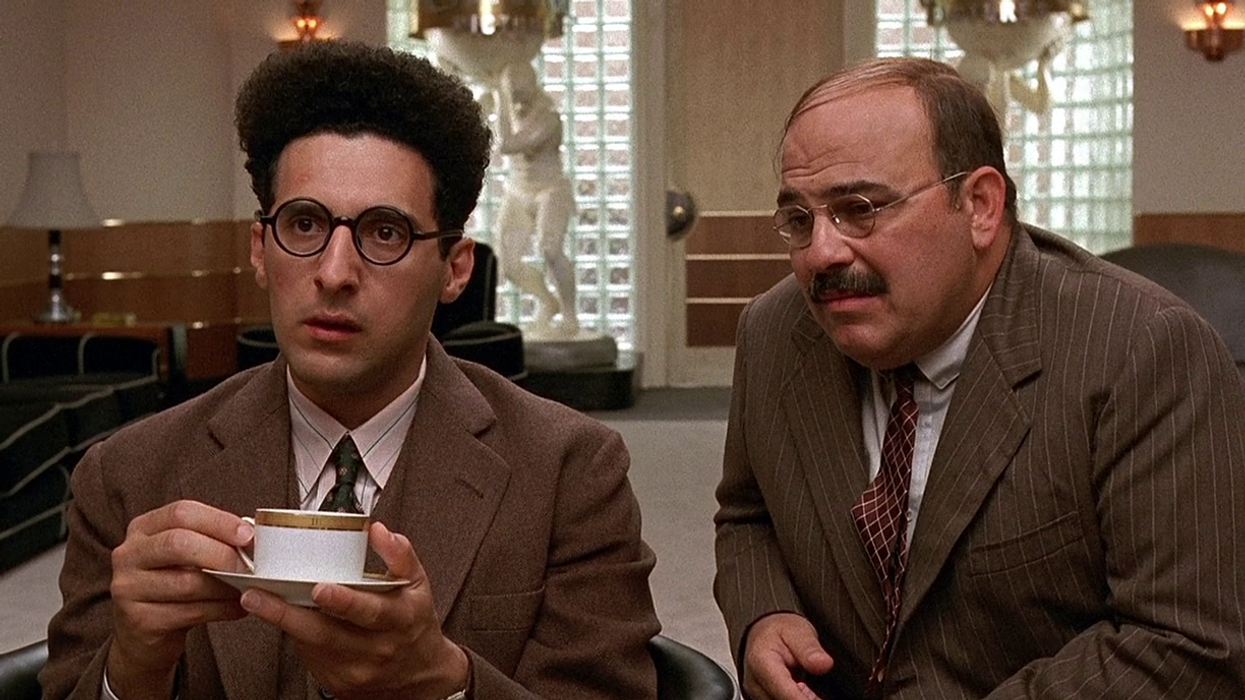
Whether you’ve been writing for decades or you’ve only just completed your first pilot, you will never outgrow the need to take meetings. If you are working within the conventional system, meetings are an essential part of the equation when it comes to delivering your story from the page to the screen—and the better you can perform in the room, the more likely you are to see those stories come to life for the world at large.
When you’re first starting out, meetings can feel more than a little intimidating, and you might even struggle to figure out how you get yourself in a conversation with the right person. Fortunately, The Writer’s Guild Foundation put together an eclectic panel to help advise up-and-coming television writers about how to start getting meetings, and what to do once you find yourself in these sessions.
"Once you’re in the meeting, make sure the story you’re telling connects with the outcome you want."
Moderated by esteemed writer, documentary auteur, and comic book creator Brandon M. Easton, the four person panel featured acclaimed story and career consultant Jen Grisanti of Jen Grisanti Consultancy Inc.; Paradigm agent Jennifer Good; Senior Vice President at Warner Bros. Television Christopher Mack; and celebrated writer Kira Snyder, whose credits include work on The Handmaid’s Tale, The 100, and the upcoming Pacific Rim: Uprising.
The group spoke at length about how to get your first meetings, some cardinal rules for what not to do, and how to talk about your story once you're face to face with an executive who could help make it. Below are our best takeaways for five of your most likely meeting types:
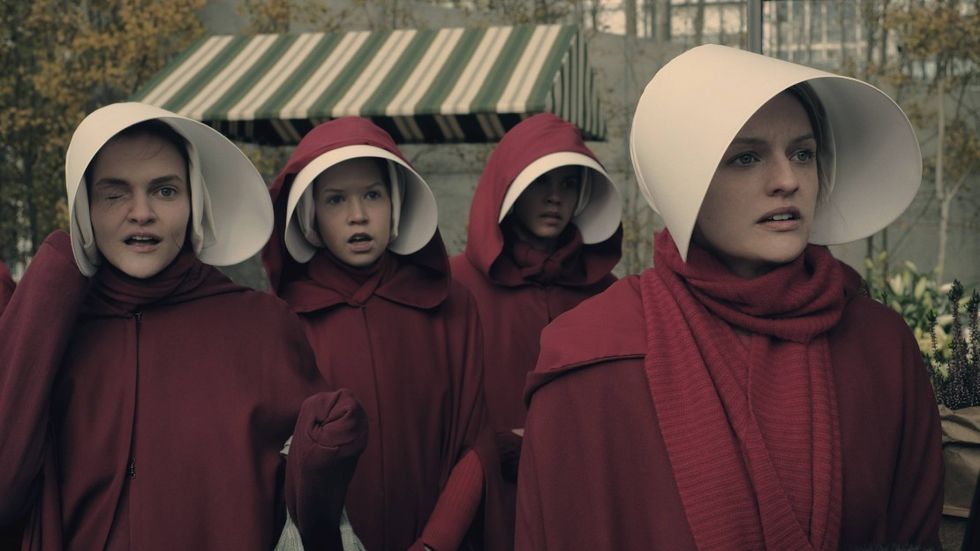
1. Getting your first meeting
When you’re first getting into the industry, you basically have to squeeze your way in however possible. Mack opened up the conversation with his own story. He didn’t have any personal connections in the industry, “so I got a list of all of the black executives and agents in town, and this was maybe like eight people, and I was literally just cold calling, saying ‘Hey, my name is Chris Mack, I’m an African-American law student at Loyola Marymount, I’d love to come and talk to you about the business.’ It was as simple as that. Half of them said yes, I got to meet them, and when they realized I was normal they called the other half, and I got to meet them too.”
Mack’s method may not work for everyone but, when you’re taking those first steps, Mack says you “have to figure out your angle in. It really helps even if you have just one contact in the business. That contact may not even be able to help you as a writer, but for every person that you know, that person will probably know at least three people that can help you get to your goal. Game the system to meet their contacts and build out your Rolodex.”
"Productive networking starts with you.”
And if you can’t come up with a connection like Mack’s, there are plenty of other options as well. For example, university alumni networks provide a great support system for many people, and for those located in Los Angeles, there are all sorts of events that cater to people just like you. There are mixers, writing courses, fellowships, Writer’s Guild panels, and more outside-the-box options such as comic store events or local conventions.
Even if you’re an introvert who’s wary of these sort of meetups, it’s important to know that plenty of other writers feel the same way that you do. Grisanti says to remember that at these events “you all have the shared passion of writing and storytelling. You can approach anyone in the room and ask how their writing is going or what their story is, and it acts as an icebreaker for how that person came to this event. Productive networking starts with you.” As an introvert herself, Snyder built off that, saying she got over her own shyness by taking acting and improv classes. “It’s all about building a connective tissue,” Easton adds. Keep meeting new people, and eventually, you’ll find someone who can give you the help you need.
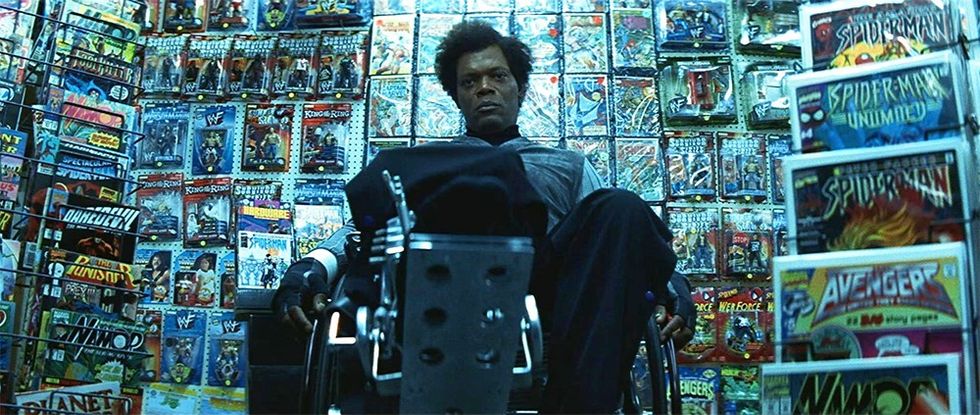
2. Meeting with potential representation
Once you get that foot in the door and you’ve met some people, the first thing to consider is getting representation, and the panel’s unanimous directive was to pursue a manager first. “Managers have smaller businesses,” Good says, “so if a manager reads your script and wants you, they’ll refer you to agents, and that will work far better than if you’re simply cold calling an agent.” If you do find yourself making cold contact though, she says, “calls just aren’t going to get through. But if you send an email and there’s some connective tissue, whether it’s alma mater, or your friendship with a client, that kind of stuff is going to get my attention.”
“Anybody can be a manager, so you need to be a little bit careful.”
Once you’ve utilized that connective tissue to get yourself a meeting with potential representation, you need to take care to make sure you’re hooking up with someone that is a good fit for you. Snyder suggests you “ask who the manager’s clients are,” and encourages pursuing smaller management teams, because “they will hustle really hard for you.”
Mack adds that you should try to determine who understands you and your needs. “Make sure they understand your material and what your goals are. Remember that you’re the one doing the interviewing. The agent works for you. They help you, but an agent is also only 10% of your net worth. You’re the other 90%.”
Good also throws in a reminder that “anybody can be a manager, so you need to be a little bit careful. Talk to your support group about who you’re meeting and don’t do anything a manager wants to charge you for.”
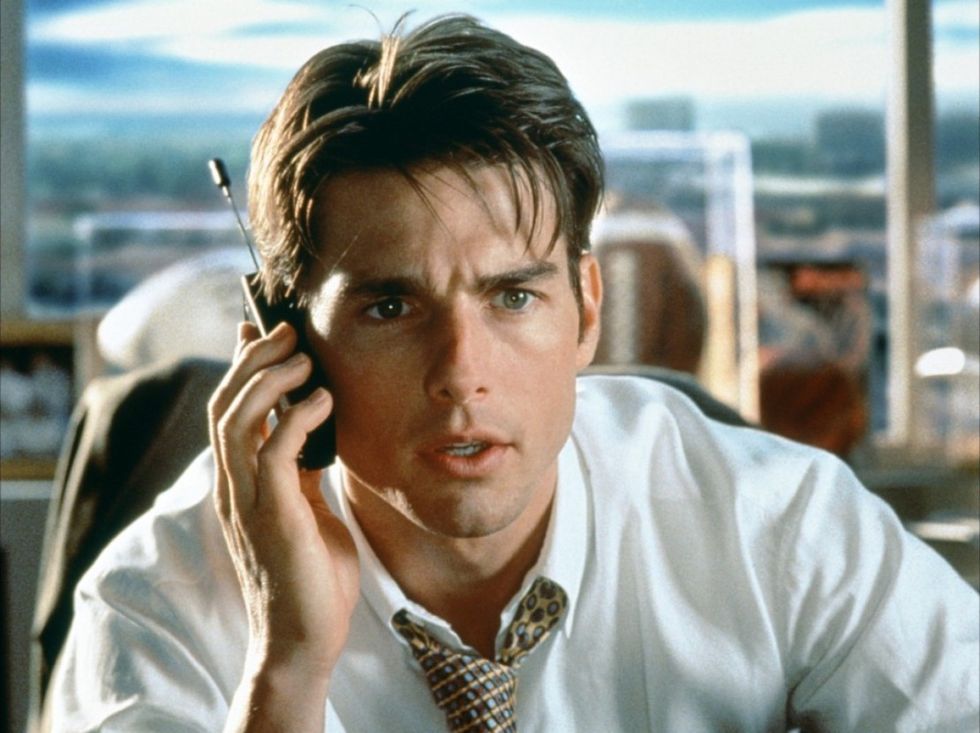
3. The exploratory meeting
Any type of meeting could be considered exploratory, even if it doesn’t have a specific objective or agenda. When it comes to general meetings, “every opportunity you have to meet and talk to someone new is a great opportunity,” Snyder says. She describes a general meeting as “a job interview without an actual job on the line, so the pressure is off. It means that someone has read your script and thought it was interesting and they want to meet you.” The group agreed that you really just want to be yourself and be passionate. According to Grisanti, the “goal of the general is to make an authentic connection with the person you’re meeting with.”
When you go into one of these meetings, you need to be prepared to talk and to pitch. But first, each panelist had their personal rules to apply before you even walk into the meeting. For Snyder, it’s important to be at least fifteen minutes early, especially on a huge studio lot. Mack made the mistake of wearing a suit and tie to his first meeting, and he warned new writers about not repeating his mistake, instead telling them to try to look “creative”. Grisanti added to avoid rambling, and Good emphasized doing a good Google stalking before you walk in—make sure you know the company and the person you’re talking to.
“The best writer’s rooms are filled with a diversity of backgrounds and experiences.”
Once you’re in the room, make your story personal. If you’re not good at talking about yourself, Grisanti has an exercise she gives to her clients where she has them create a logline of their life. “Create a summation of yourself. Find the most salient personal stories, and once you’re in the meeting, make sure the story you’re telling connects with the outcome you want. Find a way to be directly connected to your writing.”
Snyder says, “The best writer’s rooms are filled with a diversity of backgrounds and experiences. People transitioning from other careers or who didn’t come from film school, they can see those differences and see how that informs the way you write.” Use your differences as an asset: your life experience and extraordinary background can provide the unique perspective that elevates a writing team to the next level.
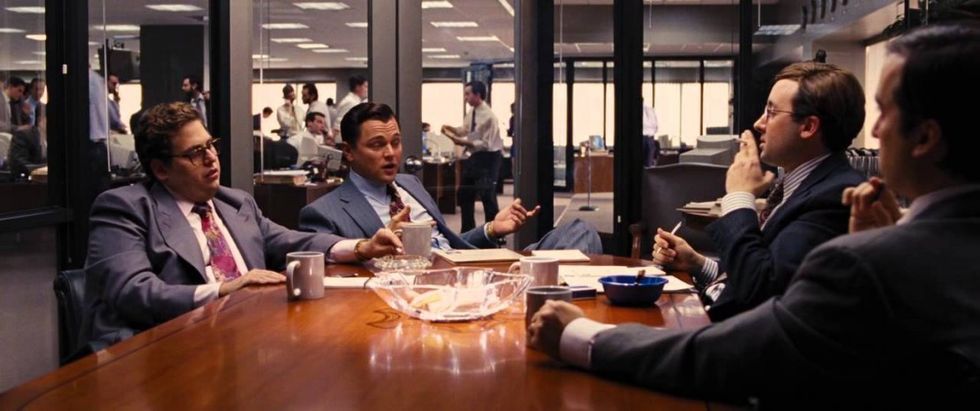
4. The all-important pitch meeting
Before you take a pitch meeting for your series or film, you’ll want to put together your pitch papers. If you’re unfamiliar with what that looks like, Grisanti shared a template for writers to check out.
As the primary writer on the panel, Snyder took the lead in talking about how to perform your pitch. “Everything will be written down, and no one minds you having it there, but don’t read off the paper. Make the pitch conversational. You can reference your pages, but you certainly shouldn’t need them to show why you love this story.”
“Start with why you’re interested in the project and what makes you qualified to tell the story.”
Snyder encourages writers not to rush things, but be concise. Give yourself 15-20 minutes, and “keep it engaging. You should know your pitch and your story intimately. Before you go in, practice your pitch in front of someone else—your agent, your friends, your loved ones. The people you’re pitching to will already know about the project a little bit, so start with why you’re interested in the project and what makes you qualified to tell the story.
Once you sell them on yourself as a fit, then dive right in, but what you say will depend on the project. For example, if you’ve got a great teaser for your pilot then you can stick on that a bit longer and tease that out. Talk about the world of the show. Character is super important. Tell them why the main character is compelling in a TV show. Don’t pitch the pilot beat for beat—don’t get into the minutiae, but walk through the pilot, the season, and the series in broad strokes, showing how relationships develop. And then finish with questions, which they will generally have. Make sure to keep stuff in your back pocket that you can use during the questions.”
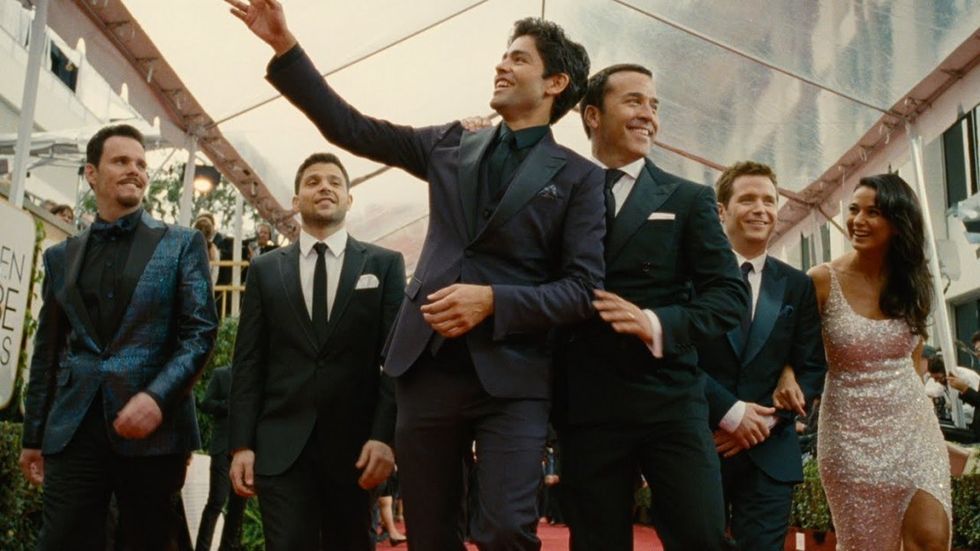
5. The staffing meeting
Once you’ve been through the other steps, you will hopefully find yourself in a staffing meeting, which is usually where you’re being considered as a writer on a show. For staffing meetings, you want to be able to maintain that same feeling you have when you go into a general meeting: no pressure.
Again, Snyder takes the lead, saying “Typically, you should be ready to talk about the pilot in detail, but not in a critical way. You’re not fixing the show. You should bring questions about choices they made and talk about particular parts of the show you’re excited about. Show what you’ll be adding to the room by focusing on your strengths as a writer.”
Mack jumps in saying, “You’re going in as the bottom rung, so you want to be a ray of sunshine. Your job is to make life easier. Don’t go in saying you want to learn from the showrunner. They don’t have time for that. Nobody is going to put the pressure of saving this show on your shoulders. This might not even be a show that you even like, but you need to find something about it that you can respond to and articulate why it’s important to you.”
Grisanti shares an anecdote she heard about someone entering a writer’s staff, where they “would figure out which character people hated writing for and then the writer would create a story just for that character, making them feel like the missing piece in the writer’s room.”
You’ve also got to know that sometimes things just won’t go as you plan. “You’re going to have bad meetings, but sometimes it’s because you just aren’t a fit for the project, which is fine,” Mack says. Grisanti says that sometimes when you catch yourself in a bad meeting, you can fix it. “The best way to turn a bad meeting into a good meeting is to interrupt the flow. Ask them to talk about their story. Ask questions. Hollywood loves to be stroked.”
















